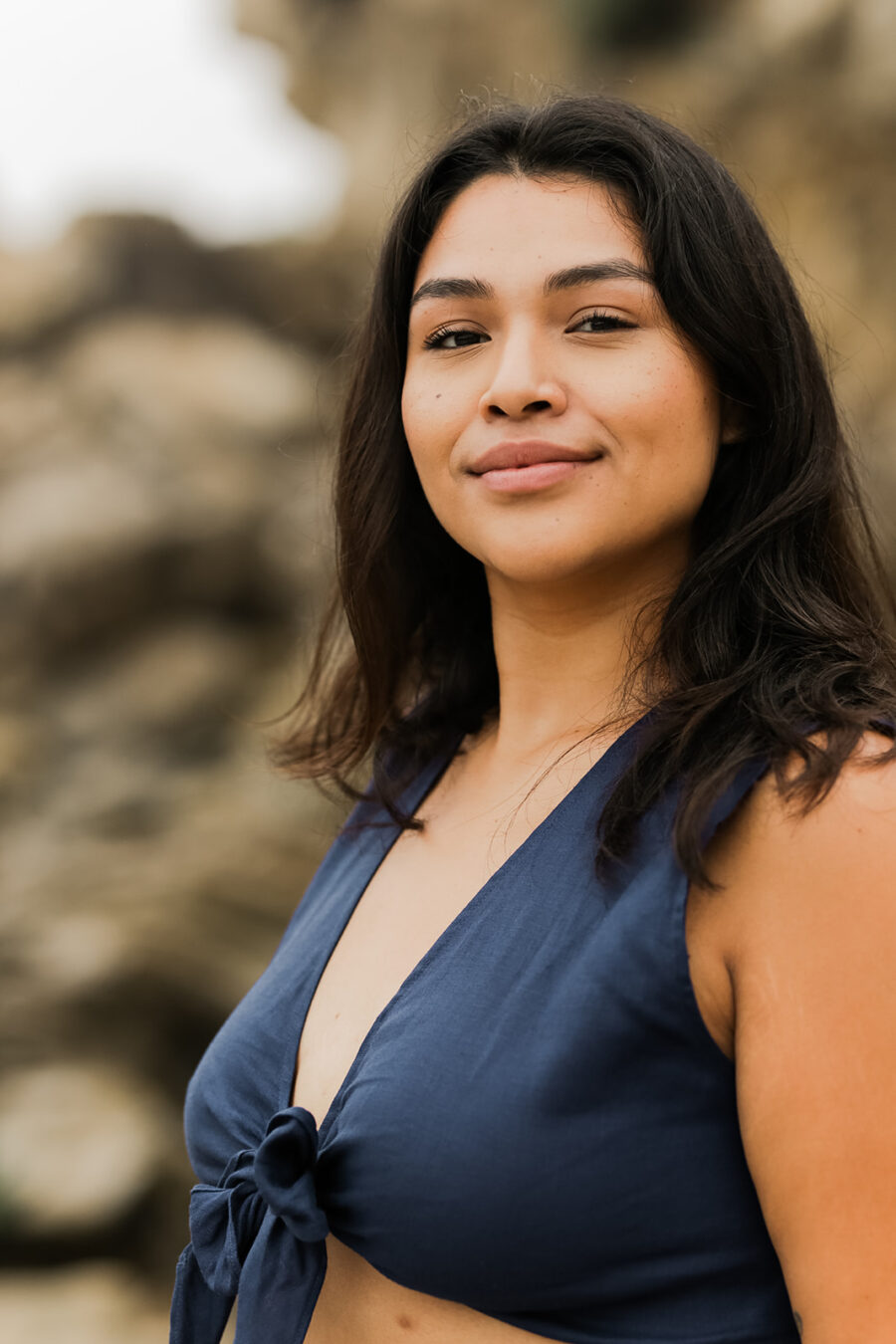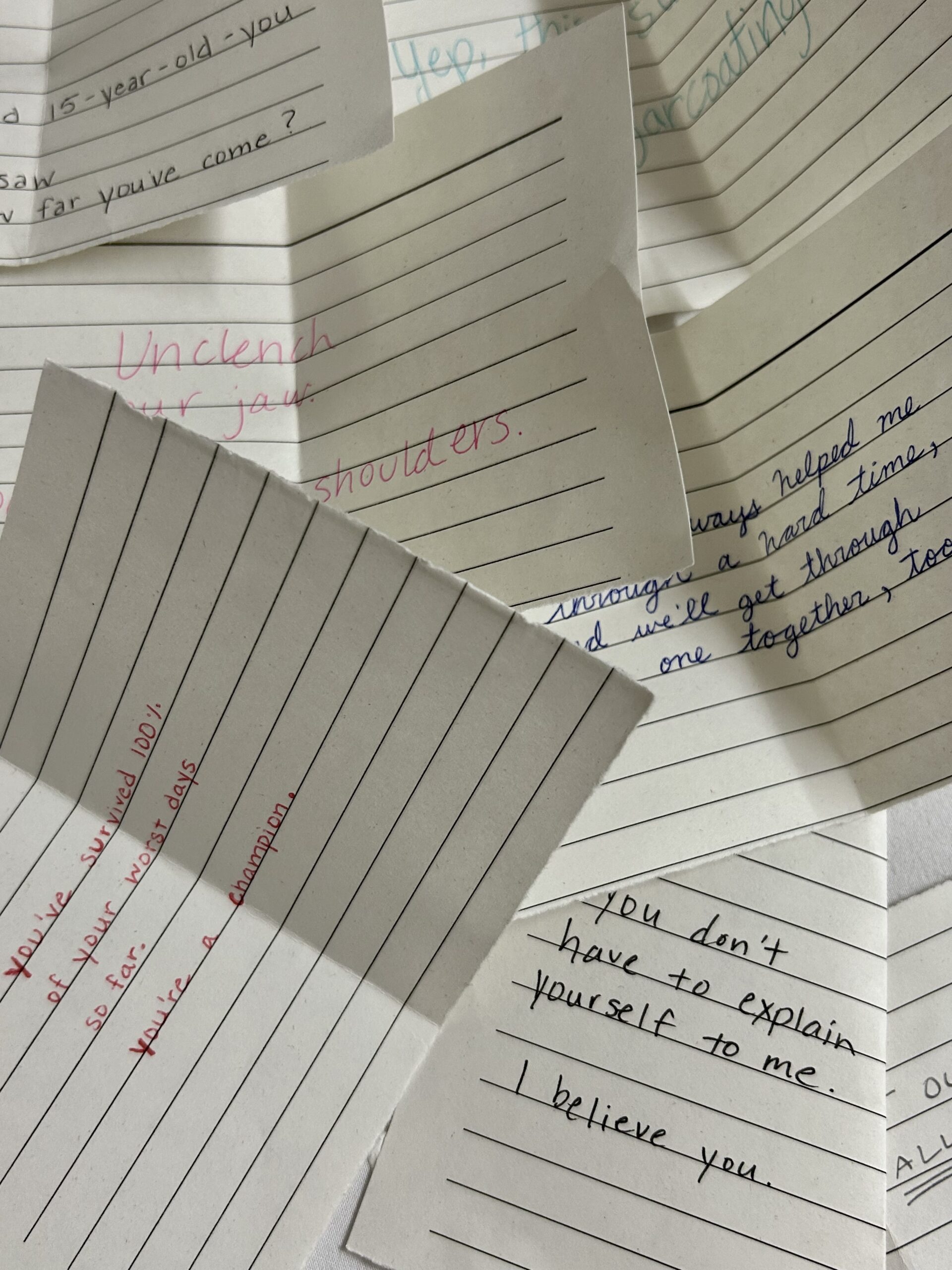
How To Avoid Awkwardness When Meeting Someone New
Meeting someone new can be scary. We often rely on established social cues to communicate with those around us, and we tend to build our most intimate relationships within familiar environments — school, extra-curricular activities, or a place of worship. But social cues can’t cover everything.
As we grow older, our networks expand and we find ourselves entering new dynamics. Plus first impressions can make a big deal in our adult lives, determining the path of our careers, friendships, and romantic relationships. These conversations can also be a tool to help us gauge if we want to enter into a new partnership with a collaborator, business coach, friend, or new doctor (the list goes on).
“The phase between the initial introduction and being comfortable with someone can be awkward.”
Whatever the relationship dynamic, the phase between the initial introduction and being comfortable with someone can be awkward. This can be due to a social anxiety disorder, simply not knowing what to say, or feeling out of place. While about 7% of American adults have social anxiety disorder which can make conversations with new people harder, the feeling of being scrutinized or judged when in social settings or doing everyday tasks affects most of us at some point.
Even for those without social anxiety, sparking a conversation may be tricky. According to Dr. Jenny Woo, founder and CEO of Mind Brain Emotion and creator of the 52 Essential Conversations card game, having a strong conversation depends on all parties involved. She compares a successful conversation to the reciprocity of a game of tennis.
“When you serve and return the ball, going back and forth, that’s what keeps the conversation going,” she explains. “It’s that back-and-forth element that needs to stay on track. If someone digresses or isn’t really answering [the] question or relating to someone talking, then that’s when it gets awkward.”
“While you may assume a strong conversation is simply based on content, it also involves other non-verbal cues — like being an active listener or responding with your body language.”
And while you may assume a strong conversation is simply based on content, it also involves other non-verbal cues — like being an active listener or responding with your body language. This can help the other party know you are interested in the conversation. We’ve all been in a conversation with someone who seems to be distracted or starts looking at their phone. This can easily deter us from wanting to continue the conversation.
So, what can you do to keep the conversation flowing when you meet someone new? Read on for some tips and helpful questions to make you a stronger conversationalist. 🗣️
Practice building confidence beforehand
If you know you’re going to be in a social setting, like a networking event or party, preparing yourself beforehand can ease some nerves. Before attending, take some deep breaths. When feelings of nervousness creep up, acknowledging them and taking the time to calm your body can help.
“As you practice, you’ll find that knowing what to say makes you feel more confident about how to approach another person.”
Once you’re feeling calm, try some mental role-play. Ask yourself what your goal is when attending this event. Are you interested in meeting new people? Do you want to stay to yourself or with a group of familiar faces?
You can look in the mirror to practice your facial expressions and body language. Dr. Woo also recommends coming up with three talking points. These talking points should be about your interests, so you’ll always have something to contribute.
As you practice, you’ll find that knowing what to say makes you feel more confident about how to approach another person. You’ll also be more in tune with your physical responses, signaling your interest to your conversation partner.
Initiate small talk
Much of the awkwardness from beginning a conversation can come from being unsure of what to say. This is where small talk comes in. Initiating small talk is a great way to get a conversation rolling without seeming too intrusive.
“Much of the awkwardness from beginning a conversation can come from being unsure of what to say.”
Dr. Woo recommends using the HEFE method which stands for Hobbies, Entertainment, Food, and Environment. The acronym is meant to offer talking points for jumping over the initial hurdle of beginning a conversation. This method introduces a lighthearted topic that is relative and can be used in almost any situation.
For example, if you’re on a blind date, an example of the HEFE method in conversation would be to ask the other person about their food preferences before ordering. This can lead to a deeper conversation about their likes or dislikes, personal history, or interest in cuisine. Don’t underestimate the power of artful small talk.
Go with the flow
Sometimes a conversation can deviate from your initial plan. That’s okay! A great conversation may cause you to have to think on your feet. Don’t be afraid to go off-script. This is usually where things get interesting.
“A great conversation may cause you to have to think on your feet.”
There may be moments where you may need to take some time to think about your follow-up questions or answers, especially in an interview setting. This is okay too. A thoughtful question or answer simply shows that you are attentive and a reflective person.
And remember, it isn’t all up to you. If you find the other person interested in continuing the conversation, allow them to drive the conversation while you offer reciprocity when necessary. Eventually, the more experience you have, the easier you’ll find all of this.
To get the ball rolling, here are some conversation-starter questions to add to your repertoire.
Questions to start a conversation
General
- How has your day been?
- I was just listening to [musical artist]. Who is your favorite musician?
- What show are you watching currently?
- Do you have any recommendations for [drinks, food, seeing art] in this area?
- Where did you grow up? What did you like about it?
Career/Networking
- What is your favorite part of your career?
- How did you get your start?
- Is this what you hoped you’d do for work when you were younger?
- What’s the most challenging part of your job?
- What tips would you give to someone looking to break into your field?
Date-Worthy
- What’s the last book you read?
- What is your love language?
- How would your friends describe you?
- What is the best quality of your closest friend?
- Where is your favorite place to visit?
While not every conversation will go off without a hitch — remember, it always takes two willing and interested parties — knowing that you’ve upheld your end of the deal can lessen the anxiety that comes along with the art of conversation.
Do you have go-to topics for starting conversations? Are there questions that you love being asked? Let us know your strategies in the comments!
Brianna Robles is a Brooklyn, NY-based lifestyle freelance writer. Her creative writing platform, Writing My Wrongs, encourages people to share their full story. When she’s not writing, you can find her performing at open mics and trying new restaurants.



